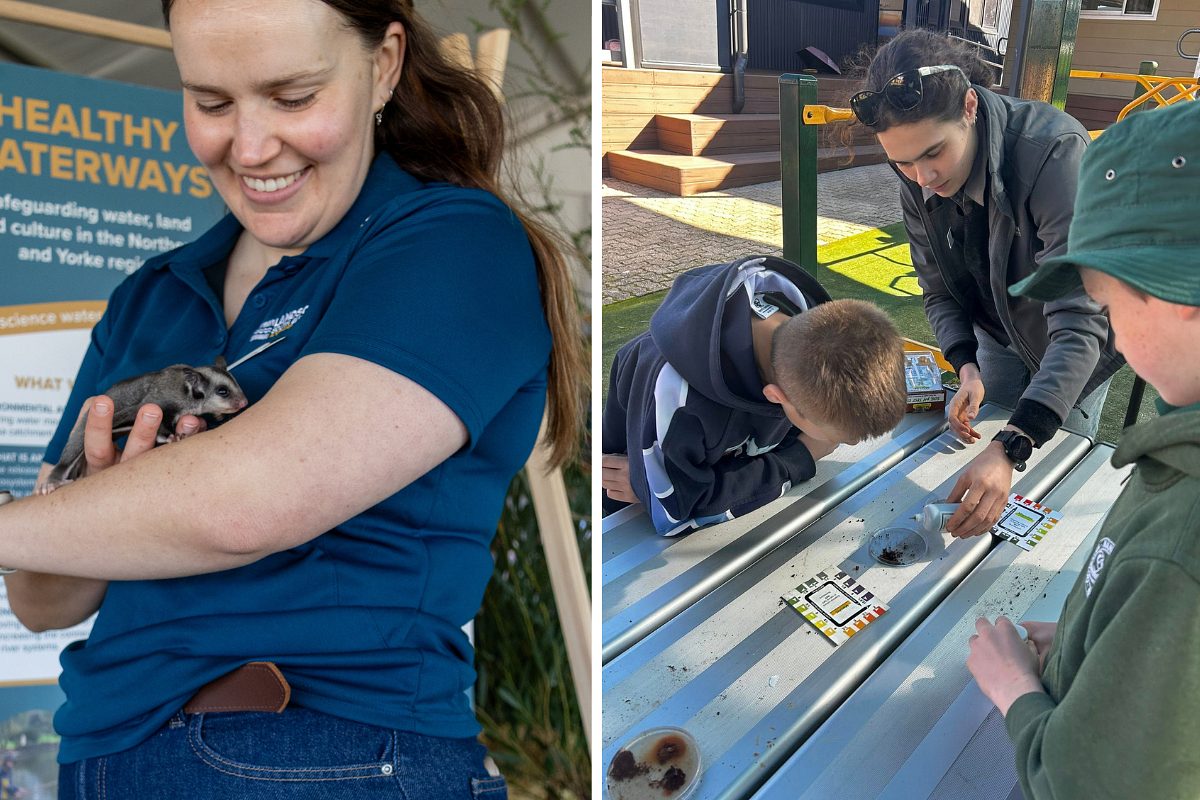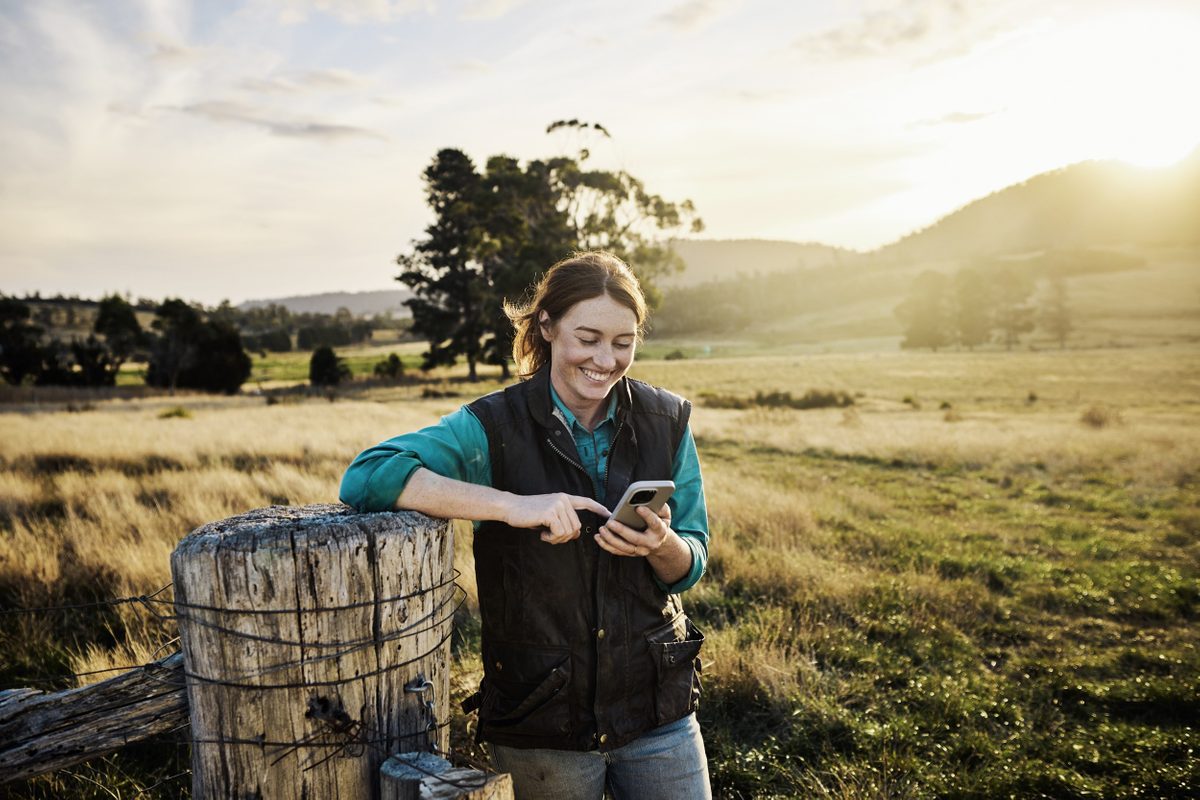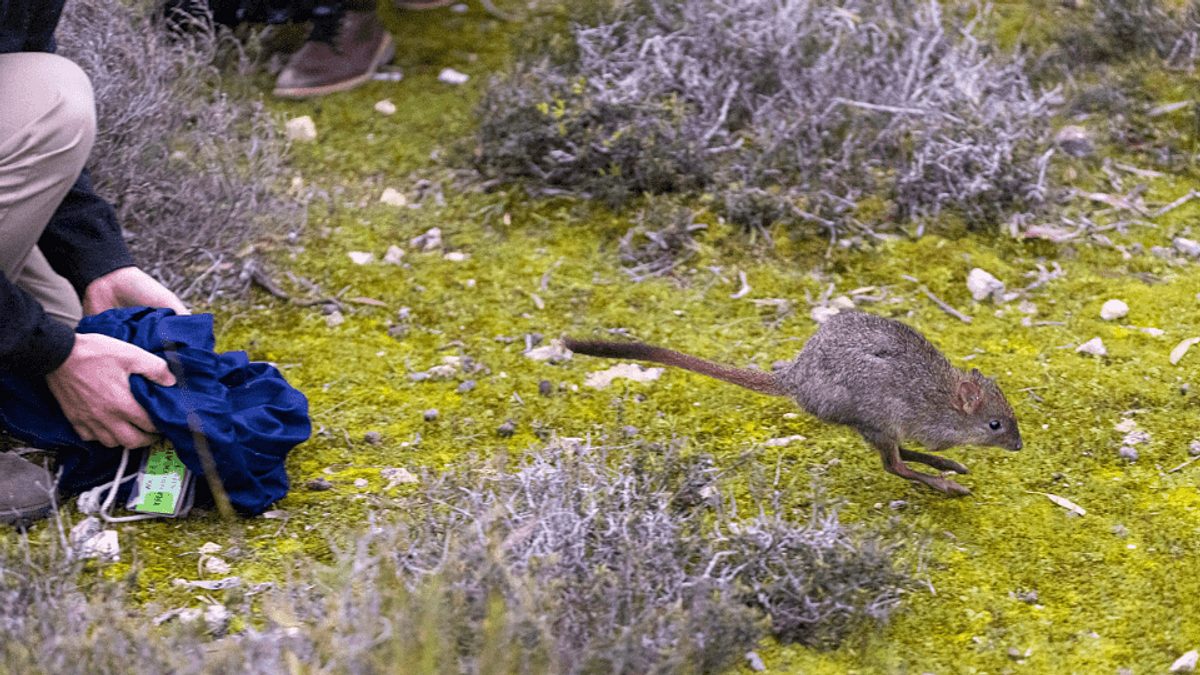African boxthorn control reaches new heights
Natural Resources Northern and Yorke has taken to the skies in a bid to further control the impact of African boxthorn on properties in the Terowie, Peterborough and Orroroo districts.
29 November 2019
The Aerial Boxthorn Control Trial, which was conducted in early November, involved trained staff applying granular herbicide from a helicopter as a way of efficiently treating the highly invasive weed.
Natural Resources Northern and Yorke Landscape Ranger Ali Nicolson said the one-week trial aimed to demonstrate the effectiveness and efficiency of aerial herbicide applications for the control of African boxthorn.
“Manual or mechanical control can be time consuming and costly and this an alternative method which has been used successfully elsewhere around the state,” she said.
A Weed of National Significance (WoNS), African boxthorn impacts on pastoral productivity by preventing stock access to watering points and crowding out desirable pasture plants. The thorny bushes form impenetrable thickets that can cause issues along fence lines, creeks, flood outs and around dams.
The trial is the next phase of the Eastern Plains Cactus and African Boxthorn Management project which commenced in 2017 to tackle Opuntioid cactus and African boxthorn. Initial work on the project involved successful technical workshops for community groups and on ground treatment.
PIRSA Biosecurity SA Established Weeds Facilitator Troy Bowman said the trial was an example of how landholders can make the most of the support offered by the Northern and Yorke NRM Board and PIRSA for improved agricultural and environmental outcomes.
“Coordinated landscape scale control greatly reduces the likelihood of reinfestation and further spread of weeds,” he said.
“By providing training and technical advice, it is hoped that we will build capacity within the community to manage infestations of these invasive weeds.”
Approximately 5000 African boxthorn plants were controlled in the trial, which was delivered by the Northern and Yorke NRM Board and PIRSA through funding from NRM levies, the Commonwealth Government's Agricultural Competitiveness White Paper and private landholders.
The next stage of the project involves monitoring the herbicide’s effectiveness, evaluating any off-target impact to native plants and conducting a cost-benefit analysis of the aerial treatment compared to mechanical control.
For information about how to become involved in the project, please contact the Natural Resources Centre in Clare on 8841 3444 or NRNY.DEW@sa.gov.au.


